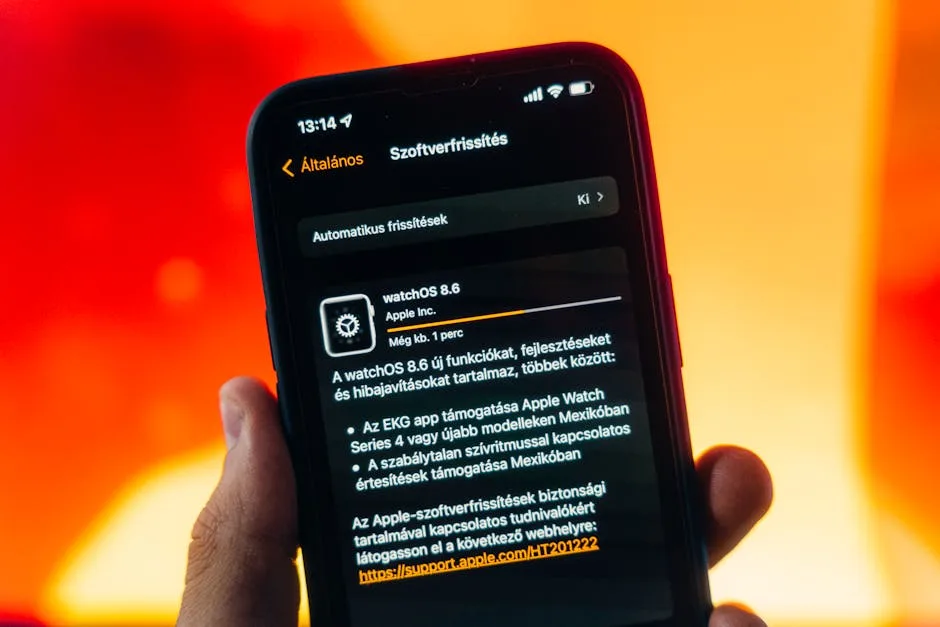
On October 3, 2025, Apple removed the ICEBlock application and similar software from its App Store, a decision made in direct response to a request from the U.S. Department of Justice7. The tech giant stated the removal was due to “safety risks associated with ICEBlock” based on information from law enforcement1. This action highlights the complex intersection of platform governance, government pressure, and the potential for technology to be leveraged in ways that pose operational security risks. For security professionals, this event serves as a significant case study in how mobile applications can be repurposed for intelligence gathering and targeting of personnel, creating a tangible physical security threat from a digital tool.
The ICEBlock app functioned as a location-based reporting system, allowing users to share information about sightings of Immigration and Customs Enforcement agents within a five-mile radius1. With over one million downloads and a surge in popularity during ICE operations in Los Angeles1, the application demonstrated how quickly crowdsourced intelligence platforms can achieve widespread adoption. The app’s creator, Joshua Aaron, stated he developed ICEBlock after observing the Trump administration’s deportation efforts, which he said evoked historical parallels5. This motivation underscores how ideological convictions can drive the development of tools that, regardless of intent, create measurable security consequences for their targets.
Government Pressure and Platform Response
The removal followed sustained criticism from the Trump administration, including public statements from ICE head Todd M. Lyons and White House press secretary Karoline Leavitt1. Attorney General Pam Bondi confirmed the administration’s direct involvement, stating “We reached out to Apple today demanding they remove the ICEBlock app from their App Store — and Apple did so”1. Bondi further asserted that “ICEBlock is designed to put ICE agents at risk just for doing their jobs”1. Apple’s compliance with this request demonstrates how platform operators balance content moderation policies against government demands, particularly when presented with law enforcement assessments of safety risks. The company maintained a consistent position across multiple statements, emphasizing its commitment to maintaining the App Store as a “safe and trusted place”12.
Security Implications and Threat Context
The security concerns surrounding ICEBlock gained urgency following the September 24th shooting at a Dallas ICE facility, where investigators confirmed the gunman, Joshua Jahn, had used ICE tracking applications prior to the attack14. This connection provided concrete evidence of how such tools could facilitate targeting of government personnel and facilities. ICE Deputy Director Madison Sheahan had previously characterized these applications as dangerous, noting they could be used to ambush ICE agents4. The Department of Justice maintained that the application increased the risk of assault on federal agents2, a concern supported by statistics citing a 500% increase in assaults against ICE officers5. This context transformed the application from a theoretical concern to a documented component in a violent incident.
Broader Implications for Mobile Application Security
The case illustrates how mobile applications with seemingly benign functionality can be weaponized for intelligence gathering against specific targets. The technical implementation of ICEBlock—a location-based reporting system with anonymous submission capabilities—represents a class of applications that can be adapted for hostile reconnaissance. Security teams should consider how similar crowdsourced intelligence applications could be developed to target corporate security personnel, executive protection details, or critical infrastructure security teams. The rapid adoption of such applications, particularly following public controversy, demonstrates their potential for viral distribution and operational impact.
For security professionals, this incident underscores the importance of monitoring emerging applications that could facilitate physical security threats to personnel. Defensive strategies should include regular reviews of application marketplaces for tools that might target organizational assets. Additionally, security awareness training should address the risks associated with location-sharing applications and the potential for aggregated data to create targeting opportunities. From an offensive security perspective, this case demonstrates how publicly available tools can be incorporated into reconnaissance phases to gather intelligence on security patrols, operational patterns, and personnel movements.
The removal of ICEBlock represents a significant precedent in the ongoing tension between technology platforms, government authority, and activist tool development. While the immediate threat may have been mitigated through application removal, the underlying template for such crowdsourced intelligence gathering remains available. Similar applications could easily be developed for other platforms or distributed through alternative channels beyond official app stores. Security teams must remain vigilant for tools that operationalize crowdsourced data for physical security threats, recognizing that the convergence of digital and physical security requires integrated defensive strategies.
References
- “Apple removes ICEBlock app after criticism from Trump administration,” NBC News, 2025-10-03T03:34:30.081Z.
- “Apple removes ICE tracking apps after pressure by Trump administration,” Reuters, 2025-10-03T01:56:49.085Z.
- “Apple removes ICEBlock app that let users track immigration agents,” Associated Press, 3 hours ago.
- “Apple removes ICEBlock ICE tracker from App Store,” CBS News, 2025-10-03T08:24:49-0400.
- “Apple removes ICE app after Trump administration pressure,” CNBC, 2025-10-03T01:08:23+0000.
- “Apple pulls ICE tracking app from App Store,” The National Desk, 10 hours ago.
- “Apple pulls ICE tracking app after DOJ request,” Washington Examiner, 11 hours ago.
- “Apple has removed ICEBlock, a popular app tracking US immigration agents, from its App Store,” NewswireLK, 2 hours ago.




